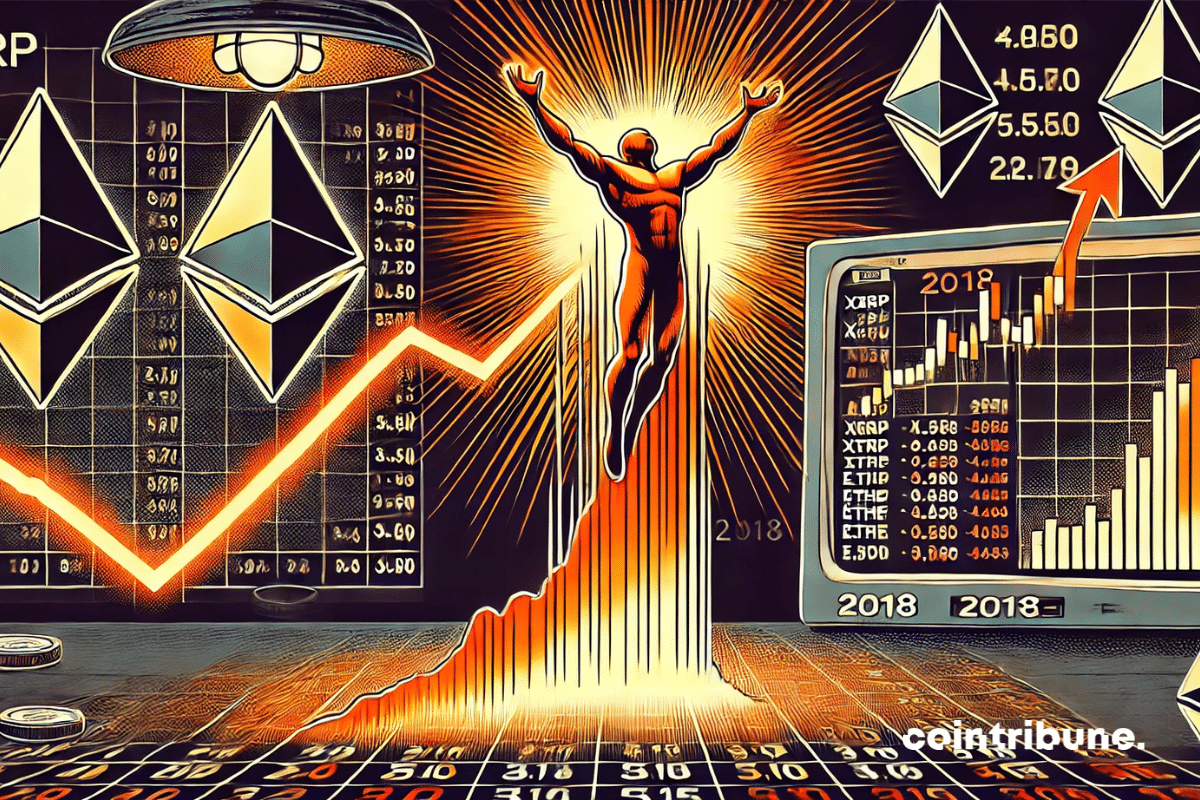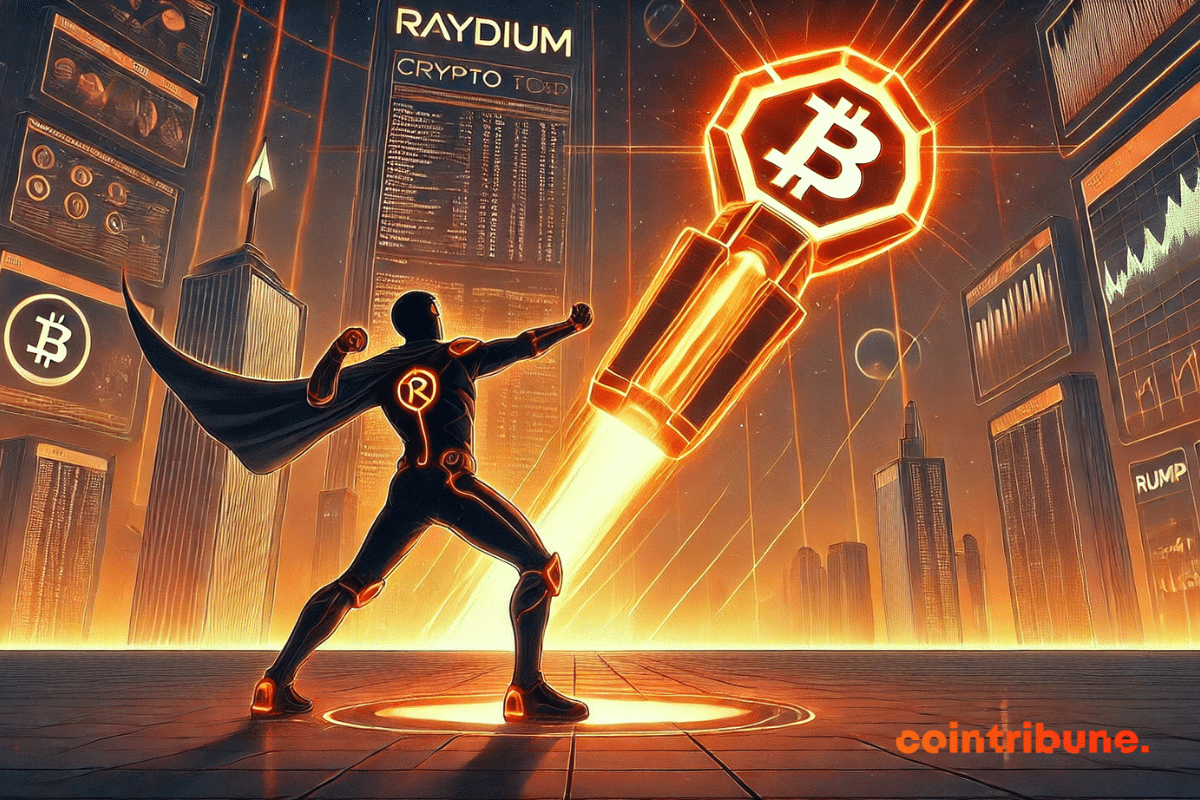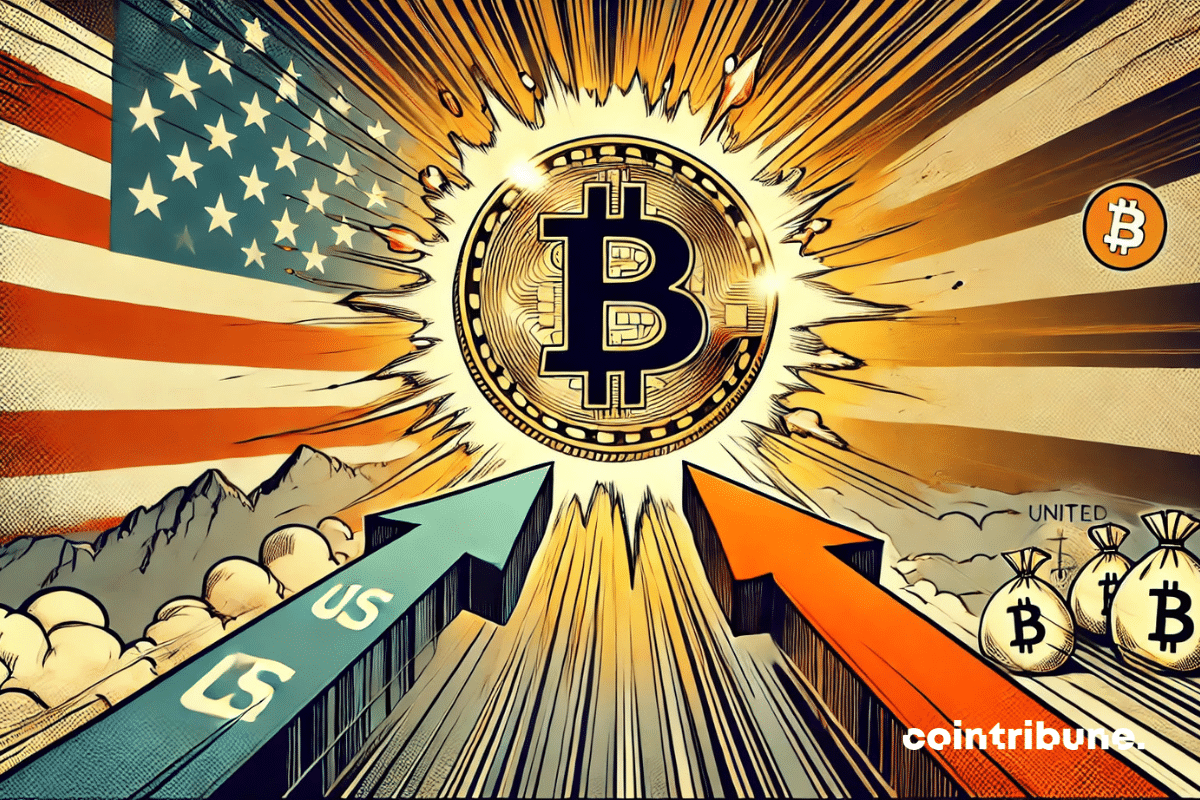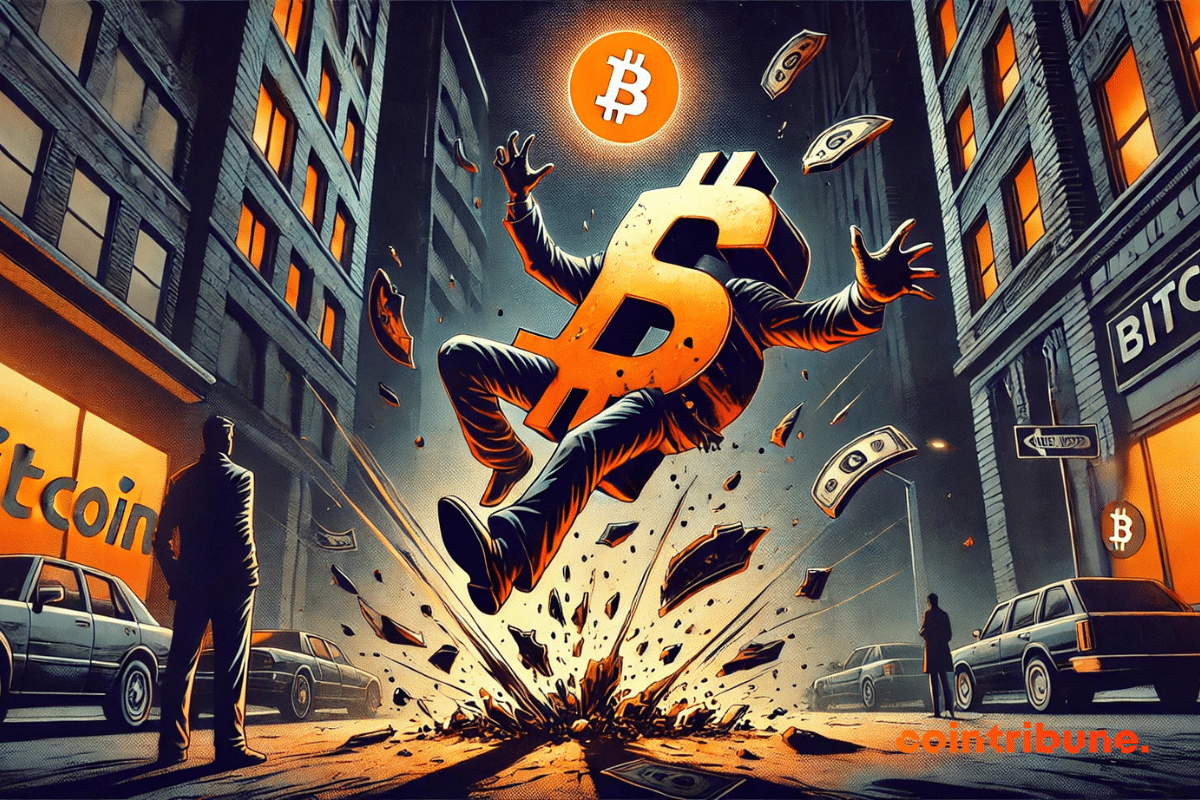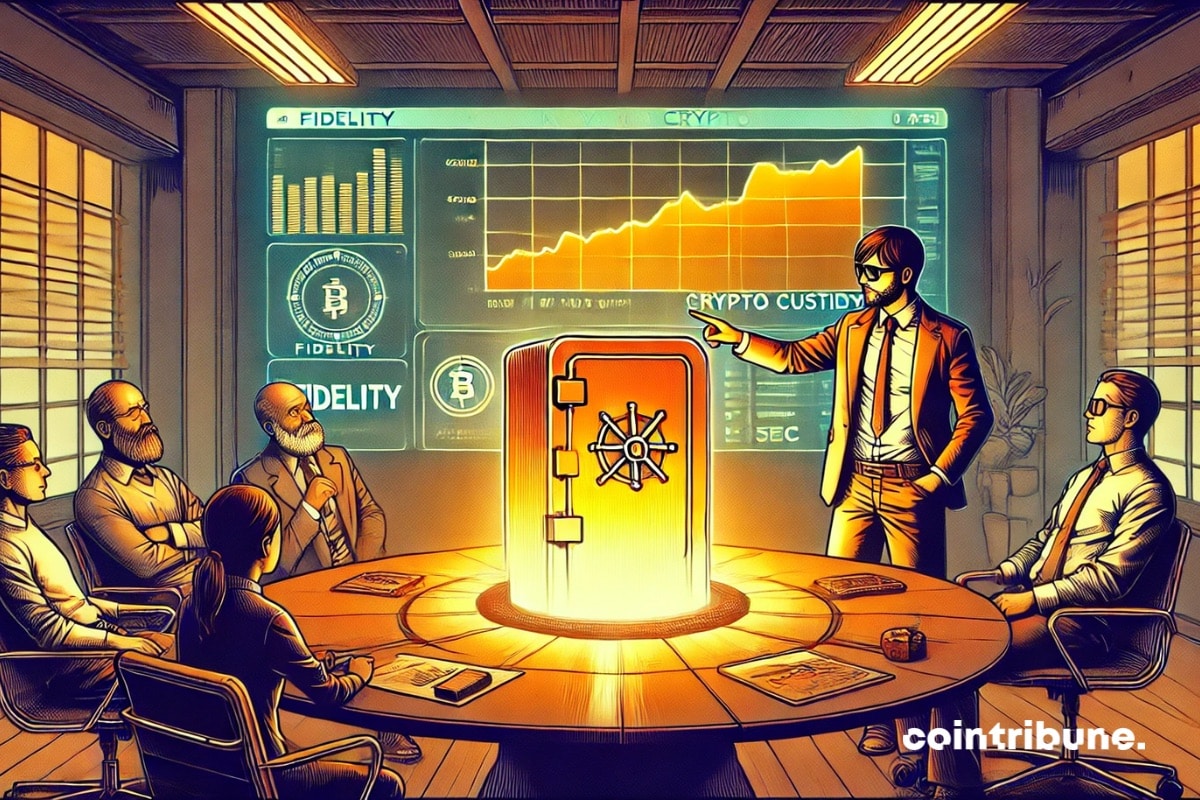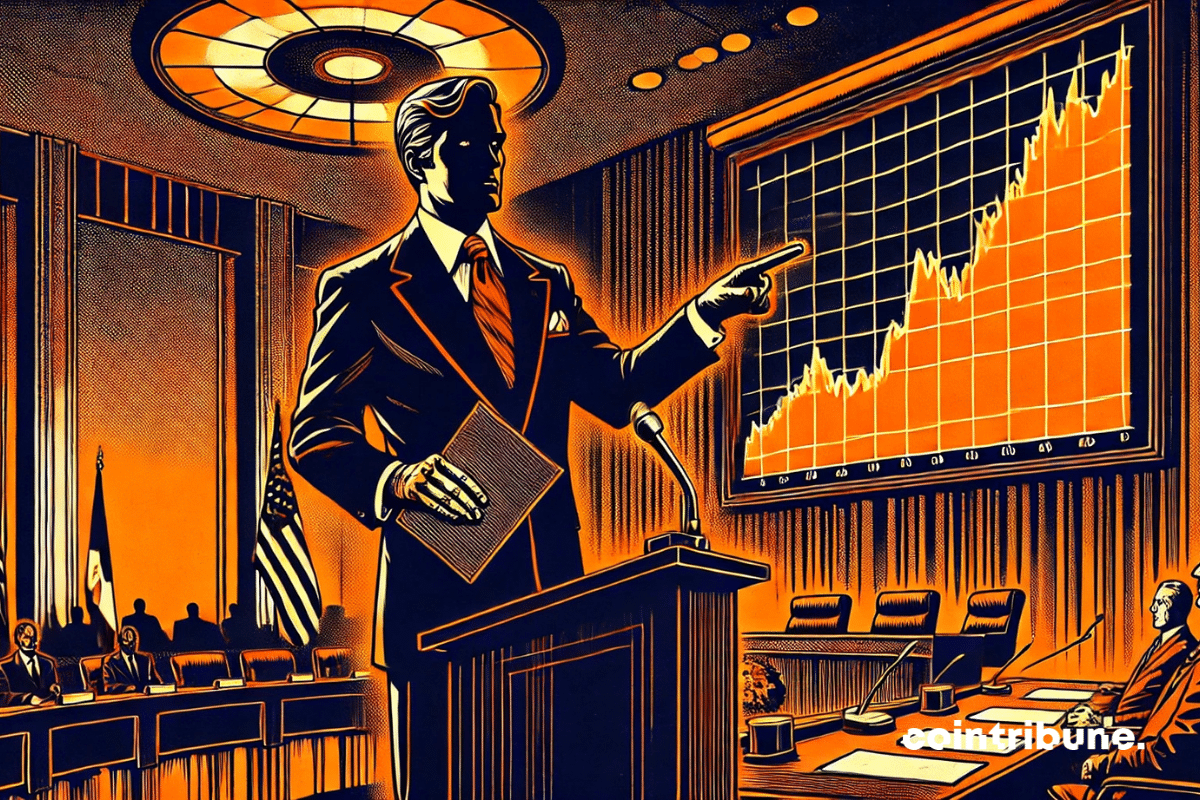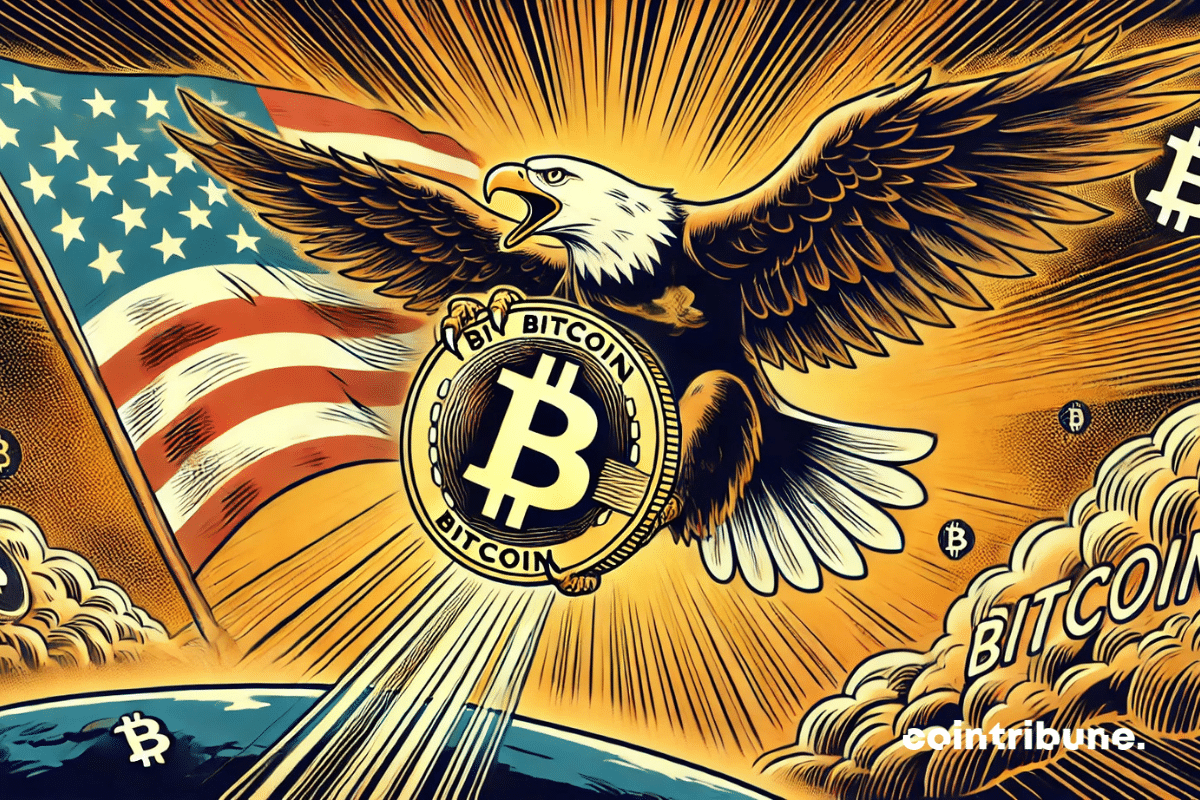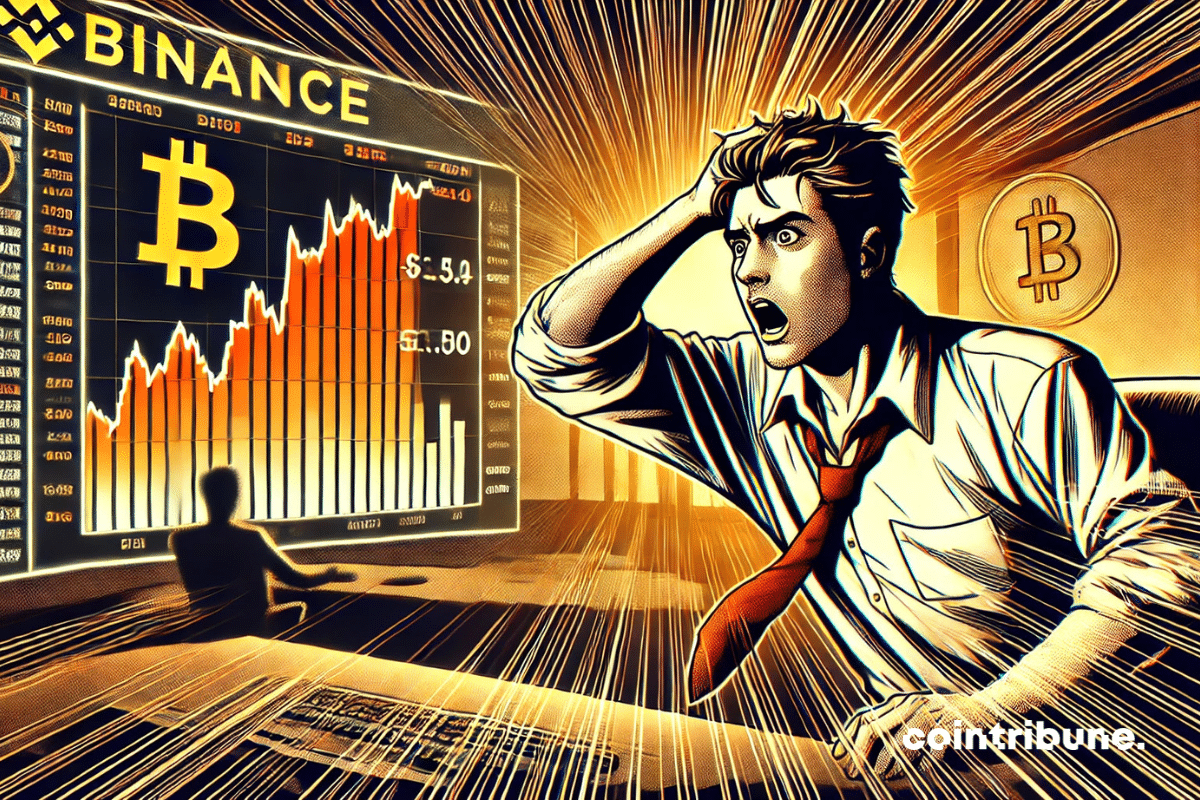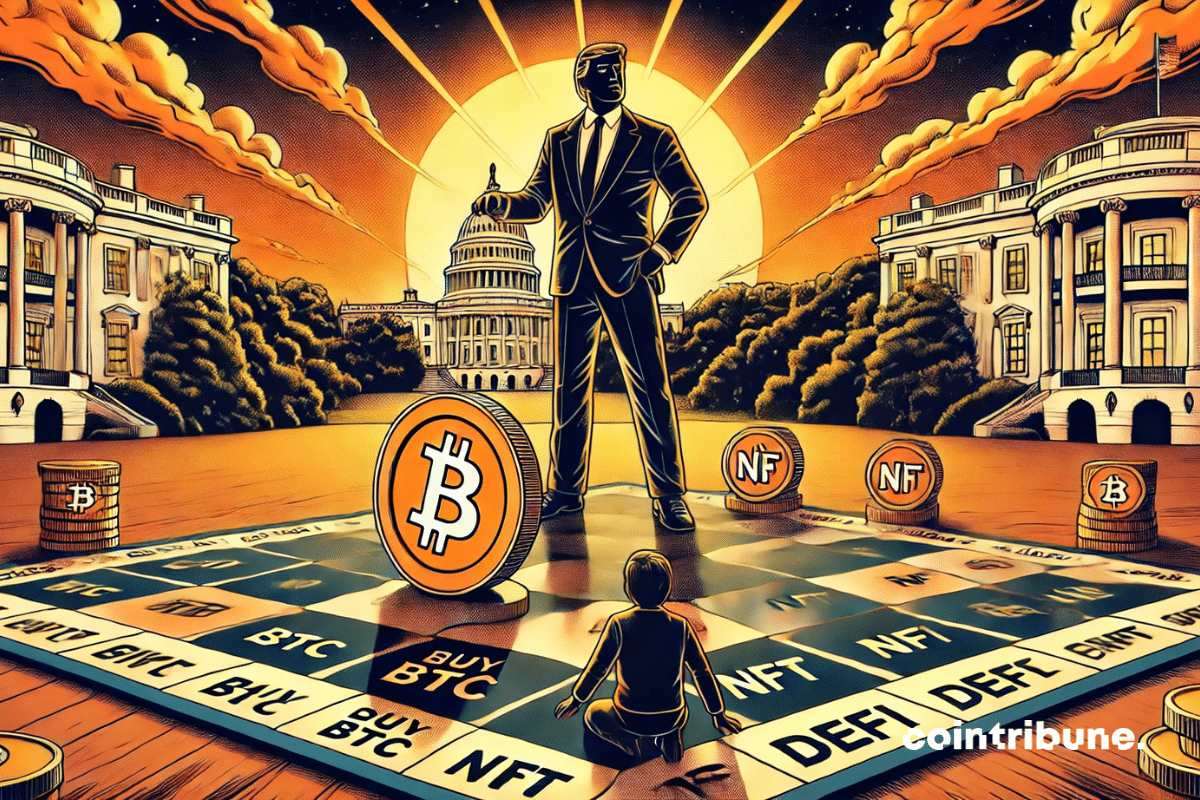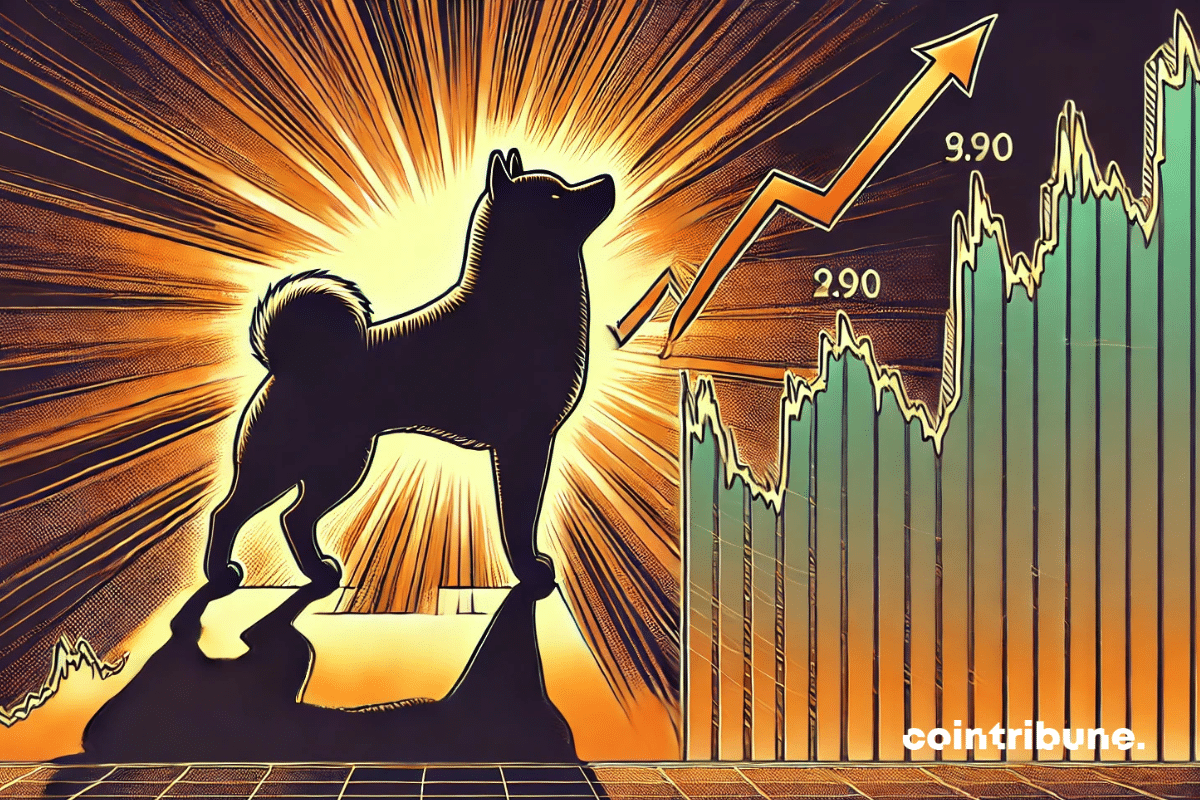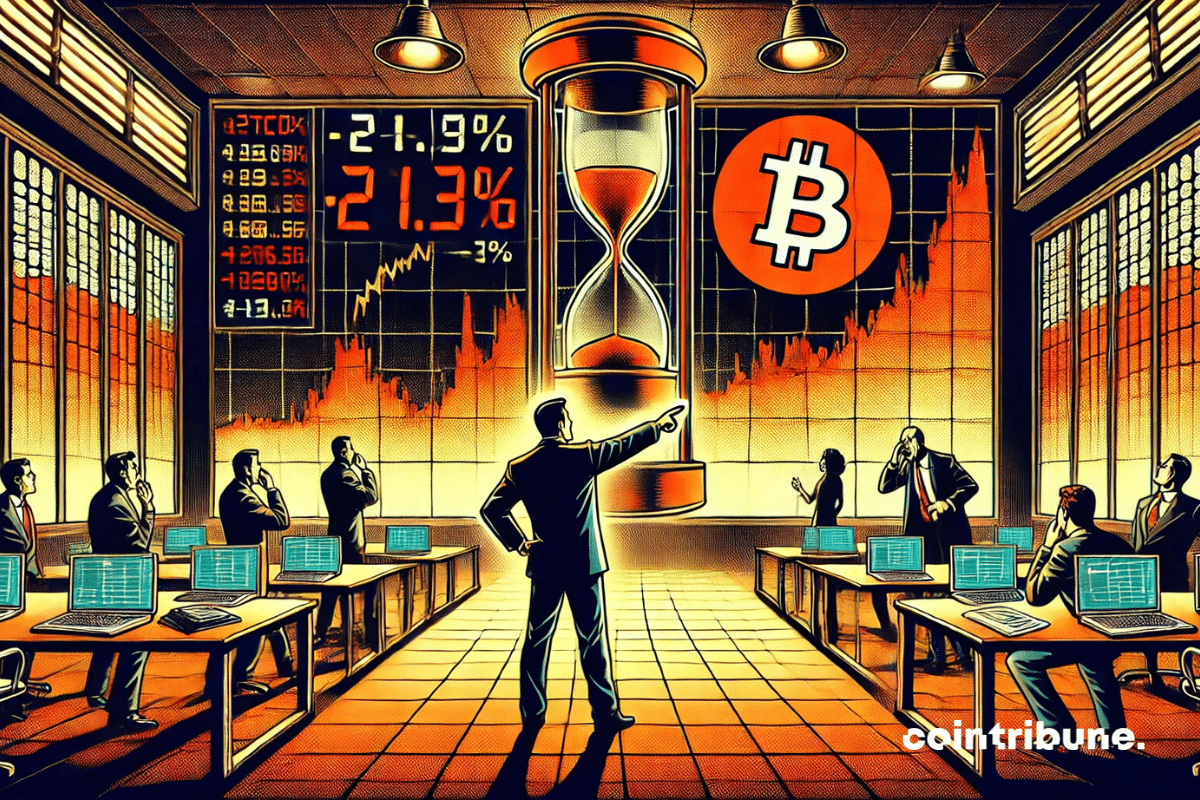Solana is back in the spotlight. After a downturn marked by a massive outflow of capital, the network has recorded an unexpected return of funds. Nearly $120 million was transferred into its ecosystem within a month. This reversal intrigues analysts and sparks speculation about a recovery of SOL, its native token. While some see it as a strong signal of regained confidence, others remain cautious due to an still fragile market structure. What does this renewed interest really conceal?
Cmc RSS
Against all odds, the crypto market started 2025 in decline, catching investors off guard. Bitcoin and Ether, usually strong performers in the first quarter, recorded their worst historical performances during this period. This sharp reversal, breaking with known seasonal dynamics, reignites debates about a potential rebound in the second quarter, while economic uncertainties weigh on all risk assets.
Richard Teng, CEO of Binance, revealed that the crypto exchange platform is helping several governments establish strategic bitcoin reserves and develop regulatory frameworks. This trend is accelerating as many countries follow the American example in digital asset policy.
In 2025, the crypto universe looks like a movie scene where the same actors return, despite expectations of a new script. According to CoinGecko, AI tokens and memecoins still capture 62.8% of investors' attention in the first quarter. This dominance raises questions: is the market destined to recycle its old successes, or does this persistence hide a subtle transformation?
Cointribune is happy to invite you to participate in its new Read to Earn (R2E) quest on Credefi. This unique initiative not only allows you to earn crypto rewards but also to deepen your knowledge about this DeFi platform and the tools to succeed in this crypto field.
XRP has just achieved a feat few anticipated: surpassing Ethereum in market capitalization, if only for a few hours. This surge, unprecedented since 2018, is not insignificant. In a market undergoing reshaping, it reveals a possible shift in the balance of power. Indeed, it is no longer just a matter of price, but of perception, usage, and institutional recognition. This strong signal, coming from an asset long considered secondary, raises questions about the real position of the historical giants in the crypto ecosystem.
The crypto ecosystem on Solana is experiencing an unprecedented rivalry. Raydium, a giant in decentralized exchanges, unveils LaunchLab, a token creation platform designed to counter the meteoric rise of Pump.fun. Between aggressive strategies and technical innovations, this confrontation reveals much more than just a battle of features: it is a duel to capture the speculative energy of DeFi.
The rise of American exchange platforms, favorable technical indicators, and the reduction in supply are creating a dynamic that could propel Bitcoin to unprecedented highs by the end of 2025.
Ethereum shows the lowest transaction fees in 5 years. Discover why traders are closely watching this crypto network.
The Russian Ministry of Finance is exploring the possibility of developing its own stablecoin. This comes after recent U.S. sanctions and actions by Tether, which blocked wallets linked to the Garantex exchange. This initiative primarily aims to avoid dependency risks associated with foreign stablecoins, such as USDT.
As the dollar falters under the blows of trade tensions and macroeconomic doubts, Bitcoin emerges as a bold alternative. Between hopes for a rebound and strategic uncertainties, the cryptocurrency whispers a promise: to rewrite the rules of safe-haven value. What if 2024 marked the advent of a new financial paradigm?
In March, publicly traded mining companies sold more than 40% of their newly mined bitcoin, marking the largest monthly liquidation since October 2024. This trend breaks with the accumulation strategy observed after the last halving.
According to a crypto expert, Bitcoin could revolutionize U.S. Treasury bonds. In this article, we explain how.
The United States Securities and Exchange Commission (SEC) is hosting a roundtable on April 25, 2025, bringing together crypto industry leaders such as Kraken, Fidelity, and Anchorage Digital. The goal is to discuss issues related to the custody of digital assets and to define future regulations for the crypto sector in the United States.
Jerome Powell's words have rarely sounded so heavy. Faced with a weakened economy and renewed trade tensions, the Fed chairman warns: new tariffs could plunge the United States into a zone of turbulence. Growth under pressure, inflation lurking, political uncertainties: the Federal Reserve must now contend with increasingly contradictory variables, risking losing control over the country's economic balance.
If the United States bought 1 million BTC, the price of bitcoin could reach 1 million dollars. A strategic reserve that would disrupt the global economy and reinvent financial assets.
While the crypto market remains unsettled by speculative shocks, a subtle signal is capturing the attention of insiders: Bitcoin whales are strengthening their positions. The number of addresses holding between 1,000 and 10,000 BTC has just reached 2,014, a peak since April 2024. This dynamic, far from insignificant, reflects a thoughtful accumulation strategy. Behind this silent movement, some already see the early signs of a possible bullish turnaround.
While markets nervously scrutinize the signals from the Federal Reserve, Michael Saylor, Executive Chairman of Strategy and a leading figure in Bitcoin maximalism, surprises everyone with a statement as enigmatic as it is calculated. On X, he posts a phrase: "Bitcoin is a chess game," accompanied by an AI-generated image of him posing in front of a chessboard. A minimalist but strategically weighed message that reignites the debate about his long-term vision for crypto.
While Beijing maintains a strict ban on cryptocurrencies, a paradoxical reality is emerging: local governments are quietly selling off seized digital assets, filling their public coffers. Between opacity and financial urgency, this practice reveals the cracks in a system torn between repression and economic pragmatism. A tangle that reignites the debate on the legal framework for these assets, in a geopolitical context where China watches with suspicion the crypto-American advances.
France is struggling with a massive deficit, Bayrou calls for more work, but amid social cuts and political tensions, the reform risks triggering a governance crisis.
Bitcoin shows signs of recovery as a major indicator on Binance confirms the return of the bulls. Details here!
The Italian Minister of Economy and Finance, Giancarlo Giorgetti, expressed his concerns about the threat posed by American stablecoins, emphasizing that they could represent a greater danger than Donald Trump's tariffs. According to him, these dollar-backed cryptos risk disrupting Europe's financial stability.
Binance Chain has just completed its 31st quarterly token burn operation, permanently removing 1.58 million BNB from circulation, equivalent to 914 million dollars. This strategy could well propel the price of the world's fifth largest cryptocurrency in the coming weeks.
Ethereum's dominance in the crypto market has dropped to 7.18%, a level close to its all-time low. A bearish chart pattern now suggests a possible correction towards $1,100 in the coming weeks.
PumpSwap, Pump.Fun's decentralized exchange, experienced an exceptional week with $2.5 billion in transactions, representing a 40% increase compared to the previous week. This platform, specialized in memecoins, is attracting a growing number of investors, creating hundreds of new crypto millionaires along the way.
While uncertainty reigns in the markets and regulators tighten the noose, BlackRock continues its crypto strategy without faltering. The American asset manager has just injected an additional 37 million dollars into bitcoin through its IBIT fund. A strong move, going against the prevailing hesitations, which confirms a methodical accumulation. Through this new purchase, BlackRock reaffirms its confidence in the leading crypto and strengthens its role as a catalyst for institutional adoption.
The Trump family crypto game inspired by Monopoly: a project that could transform digital real estate. Details here!
Shiba Inu stagnates under pressure, its fall is imminent. Bitcoin absorbs investors, and SHIB, with its anemic volume, could lose a zero in value if no change occurs.
Bitcoin is nearing its peaks, but a specter hovers over its trajectory. While the asset tests $86,000, a dreaded technical indicator remains frozen: the "death cross." This crossover of moving averages, often associated with bearish reversals, persists despite the current surge. Why does such a signal persist? Is it merely an anomaly or a serious warning? As positions accumulate, traders oscillate between confidence and caution, torn by a market in full dissonance.
OpenAI, the famous AI company, is reportedly developing a social network "like X," thus putting the AI giant on a direct collision course with Elon Musk. According to anonymous sources, this ongoing project combines ChatGPT's image generation tools with a social feed, allowing users to share their AI-generated image creations.





